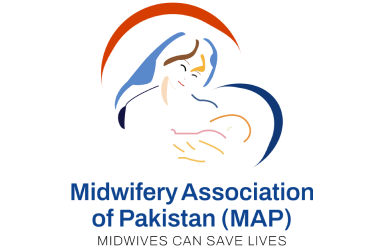Optimum Reproductive Health requires creating awareness among women about their reproductive rights. To achieve this milestone in the field of reproductive health, it is highly important to empower midwives as professionals who can serve to protect women’s’ reproductive rights, and promote women’s’ reproductive health within the communities they serve.
Below are several aspects of care that if carried out efficiently and effectively will enable midwives to achieve optimum reproductive maternal neonatal child health
Respectful Maternity Care
Respect and dignity of the child bearing women, throughout their childbearing period and at the time of delivery is the hallmark of RCMNH. In every country and community around the world, pregnancy and childbirth are hugely important events in the lives of women and families. They are also a time of great vulnerability. The relationship with the maternity care system and with caregiver during this time is incredibly important. The concept of “safe motherhood” is usually restricted to physical safety, but safe motherhood is more than just the prevention of death and disability. It is respect for women’s basic human rights, including respect for women’s autonomy, dignity, feelings, choices, and preferences, including companionship during maternity care.
Helping baby breath (HBB)
99% of babies suffering from birth asphyxia, simple interventions can be lifesaving. Among the babies who do not breathe at birth, many will respond to drying and warming, plus clearing the airway and specific stimulation to breathe. Only a small percentage of newborns not breathing at birth (an estimated 3–6%) require bag and mask ventilation, and less than 1% of babies require advanced methods of resuscitation.
HBB is an evidence-based educational program that demonstrated simple steps to effectively resuscitate the majority of infants not breathing at birth. HBB Skills demonstration trains midwife with the goal of preparing birth attendants to care for healthy newborns and to care for newborns who are not breathing at birth. HBB is focused on the Golden Minute (60 seconds following birth) when stimulation to breathe and ventilation with bag and mask can save a life.
Alternate Pain Management during Labor:
Helping mothers to bear the pains during labor by using different modes of reliving pain during labor, such as back and hand massage, aromatherapy with lavender oil, simple acupressure techniques to sacrum and immersion in water.
Prevention of newborn sepsis through Chlorhexidine
Globally, 2.9 million newborns die each year in the first month of life; nearly 202,000 of these deaths occur in Pakistan. Infections, the second most common killer of newborns, include sepsis (blood infection), pneumonia (lung infection) and meningitis (infection of lining of brain). Use of 7.1% chlorhexidine digluconate is emphasized by the World Health Organization (WHO) new recommendation issued in late 2013, for umbilical cord care in low-resource settings: WHO also added 7.1% chlorhexidine digluconate to the 2013 WHO List of Essential Medicines for Children.
Administration of MgSO4 in Eclampsia
Severe pre-eclampsia and eclampsia contributes 12% of Maternal Death due. In Pakistan MgSO4 is available in the facilities but are not being utilized due to lack of capacity. There is a need of using MgSO4 by knowing the signs and symptoms of eclampsia, correct loading and maintenance dosage calculation, dilution technique and the administration of the drug. The session also emphasized looking for the side effects of the drug and its emergency management.
Family Planning PPIUCD
Pakistan high maternal mortality rate- currently estimated at 276/100,000 live births (PDHS 200-07) is an issue of concern for the Government of Pakistan. At the root of this problem is one of the highest levels of unmet need for family planning services in the country. Few Pakistani women, 12% want another child in the first year of postpartum, yet 22% use any method of family planning (FP) during that time. As a result 64% of postpartum women have unmet need for FP in Pakistan. The PPIUCD enables women to leave the birth facility with a safe and extremely effective long acting, reversible contraceptive method already in place. Midwives as a skills birth attendant can play a vital role in this and must build their skills and help Pakistani women to meet the unmet needs.
Prevention and treatment of post-partum complications (fistulae) in Pakistan:
Prevention and treatment of post-partum complications (Fistulae) project started in 2005 in Pakistan. The purpose of this initiative was to provide adequate and accessible facilities for the treatment of fistula and to prevent the incidence of Fistula in future.
- Strengthening fistula regional centers
- Enhancing technical capacity of service providers for fistula treatment and management
- Rehabilitation
- Awareness and promotion of safe deliver
Community midwives who are working at grass root level and therefore they are ideally situated to work with communities on obstetric fistula prevention and detection of cases and referrals to appropriate facility.

